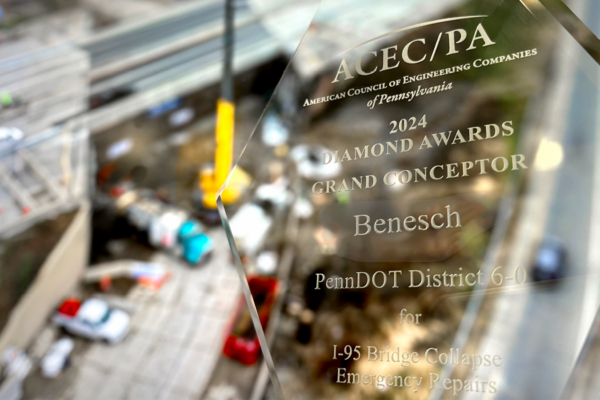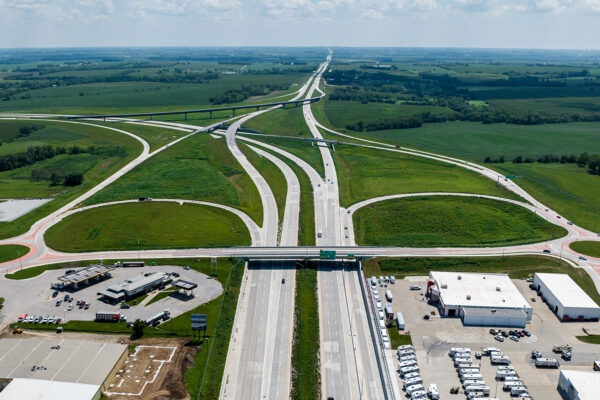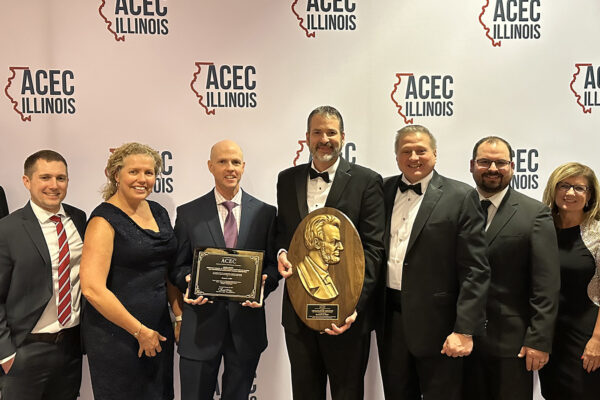Four Benesch Projects Receive National Recognition at ACEC Gala
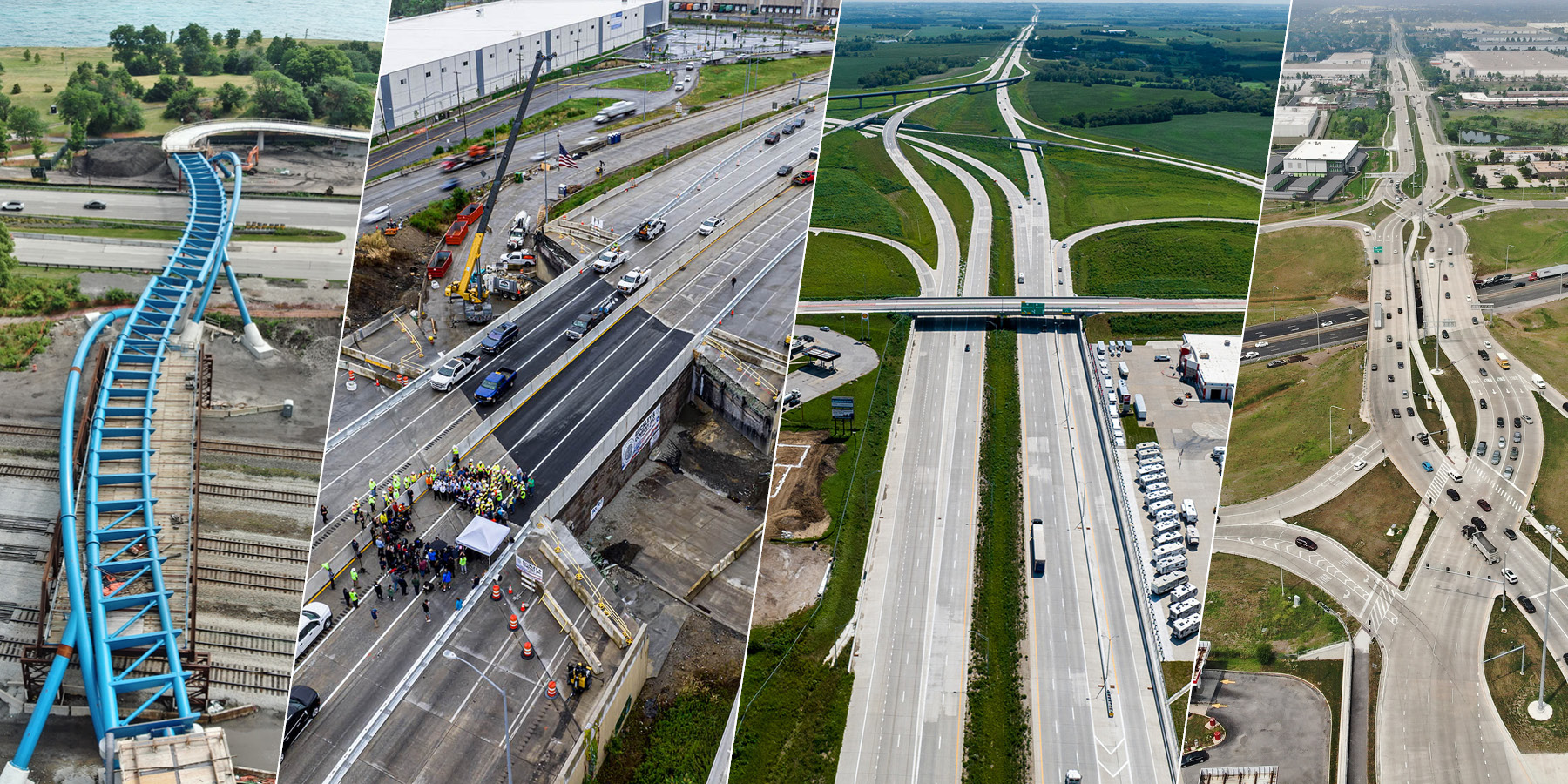
WASHINGTON D.C. – On May 15, crowds gathered at the American Council of Engineering Companies (ACEC) Engineering Excellence Awards to honor the country’s top projects. Among the award recipients were four Benesch projects, each celebrated for its engineering excellence and honored with a National Recognition Award.
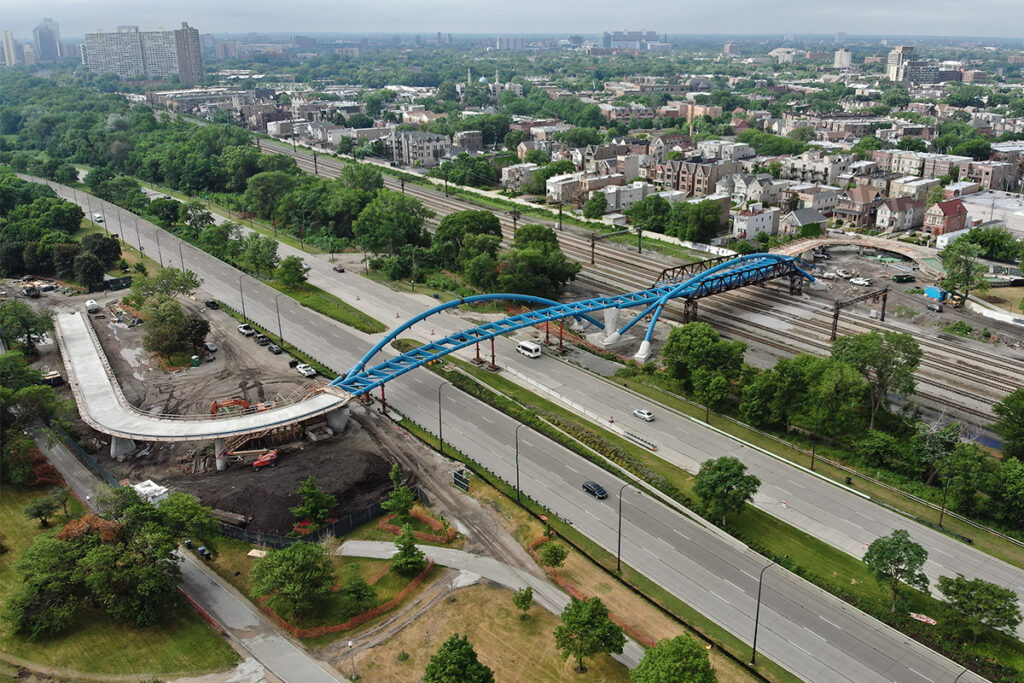
43rd Street Pedestrian Bridge
The 43rd Street Pedestrian Bridge in Chicago spans 1,500 feet, crossing over six railroad tracks and the iconic Lake Shore Drive. To replace the outdated, non-ADA compliant bridge, a new signature structure comprised of visually striking asymmetrical inclined arches was constructed. The bridge is now easily accessible to pedestrians, cyclists, wheelchair users and other people with disabilities.
Constructing the bridge over the railroad tracks and highway presented a significant challenge that was further complicated by the need to protect the overhead powered catenary lines of the Metra Electric Line that operates below. To minimize inconvenience to commuters and eliminate several construction constraints, the project team devised a temporary bridge while the replacement was constructed.
Learn More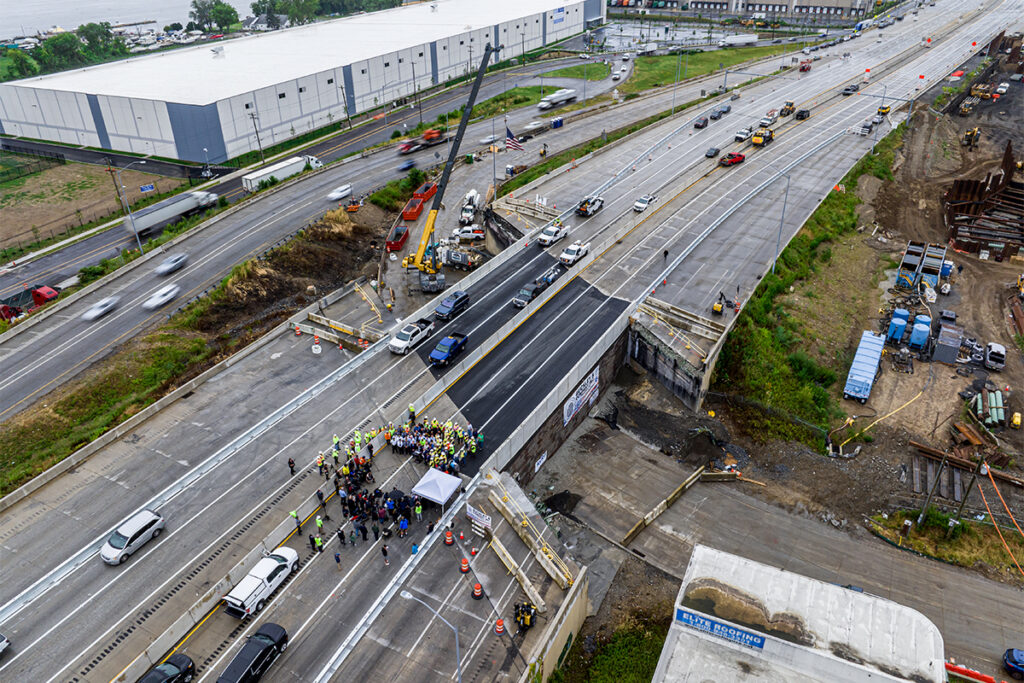
I-95 Emergency Repairs & Replacement
On June 11, 2023, a tanker truck carrying gasoline lost control on an I-95 off-ramp in Philadelphia, resulting in a devastating fire that engulfed the northbound mainline bridge of I-95. The steel superstructure quickly collapsed and the southbound bridge was compromised, leaving the corridor severed.
Benesch worked alongside PennDOT and the contractor to develop a plan to restore traffic along the corridor which accommodates more than 160,000 vehicles each day. Just 12 days after the bridge’s collapse, a temporary roadway was constructed and I-95 reopened to three lanes of traffic in each direction.
The Benesch Team started design work for the permanent bridge replacement in the days after the collapse and the completed structure is expected to open this summer.
Learn More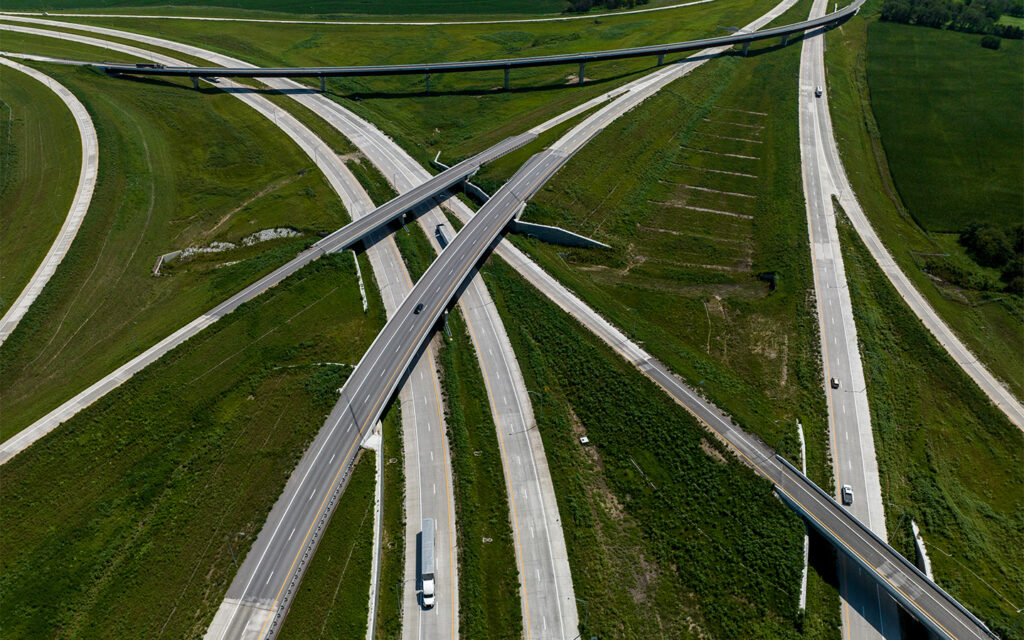
Lincoln South Beltway
Prior to the beltway’s construction, the existing east-west corridor was a congested four-lane divided arterial with 15 traffic signals, where non-local semi-trucks accounted for nearly 20% of traffic. The Lincoln South Beltway brings 11 miles of new freeway to the area, with two system interchanges, three service interchanges, 23 bridges, 11 roundabouts, and 43 miles of existing roadway realignment throughout the corridor.
The $350 million beltway transformed the region when it opened to traffic—six months ahead of schedule—at the end of 2022. Benesch led the development of the project’s Environmental Assessment document, as well as preliminary and final design, on behalf of the City of Lincoln, Lancaster County and the Nebraska Department of Transportation (NDOT).
Learn More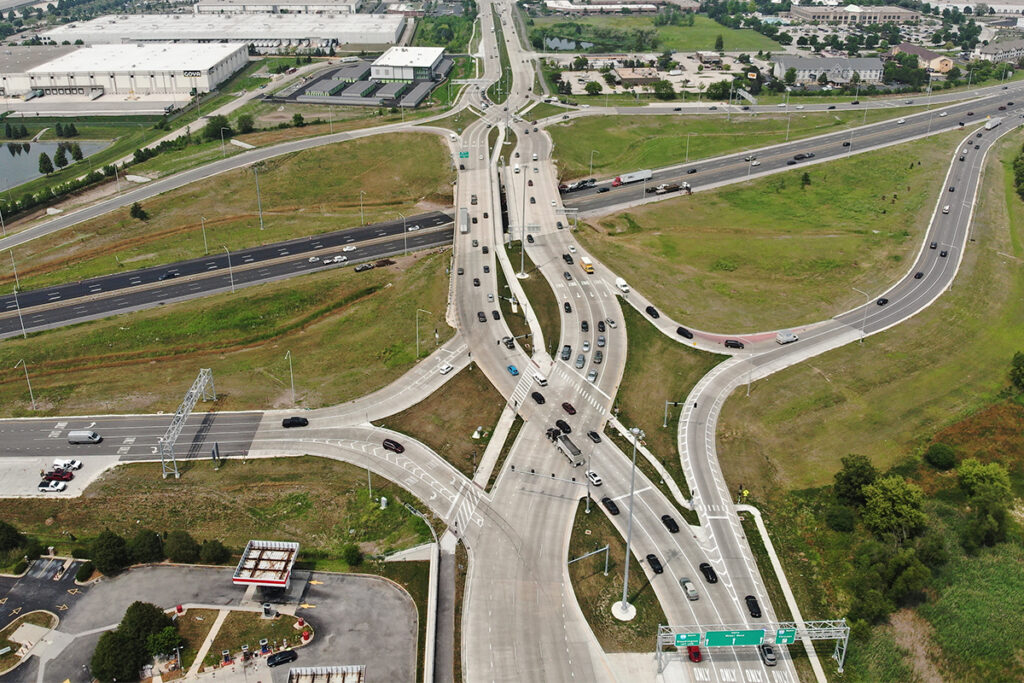
Weber Road & I-55 Diverging Diamond Interchange
After Will County saw its population double from 1990 to 2010, an innovative design solution was needed to address surging traffic and safety concerns at the Weber Road and I-55 interchange. The state-led $96 million project to update the interchange transformed the existing overpass into an innovative Diverging Diamond Interchange (DDI), providing improved mobility for the 45,000 daily motorists passing through the interchange.
Initially met with skepticism from the public and stakeholders, the DDI quickly gained public acceptance for its success in improving safety and efficiency. Today, the interchange experiences minimal congestion, enhanced pedestrian and bike mobility, minimized emissions and substantially less crashes.
Learn More
